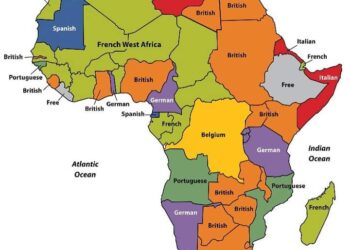The vice chancellor of Nasarawa State University, Keffi (NSUK), Professor Suleiman Bala Mohammed, speaks with MOSES JOHN on ASUU/FG parley on Integrated Payroll and Personnel Information System (IPPIS), funding of education sector, among others.
ASUU, FG on IPPIS
My understanding is that the union has raised some objection to some aspects of the IPPIS and they also proposed a new pay platform that would address the peculiarity of academic staff. You know as academic staff in the university system, we are peculiar and different from the public service. There are jobs that we do that are not captured on the public service scheme, for example, sabbatical leave, adjoin appointment, whether as visiting lecturer or as temporary staff.
The IPPIS does not capture all these. It is in recognition of this that the union had met with Mr President. We believe that some kind of discussion is ongoing, but we saw recently that there was a circular that those who did not enroll would not be paid. This applies to only federal universities. For us in state universities, we don’t have such issues, but I am optimistic that the government and ASUU would sit down and resolve the issue because the union has an alternative.
The government’s concern is to fight corruption to ensure accountability and transparency in the university system and ASUU is in agreement with that goal. So I’m optimistic that on the basis of that they would be able to seat together and resolve the issue.
Threats of strike by ASUU
My advice is that federal government should look into the issue; they should commence negotiation with ASUU so that amicable resolution would be found. Because you will agreed that the trend over time is that there would be threat of strike, the action would take place, and the universities would be shut down at the end of the day.
It is only through dialogue and discussion that you resolve the issues and open up the universities. So what I’m appealing to government to do is to ensure that they get the leadership of ASUU to discussion and ensure that we don’t get the strike option. I am sure the issue is not the one that can’t be resolved. The leadership of the union had met with Mr President, so I believe there should be room for dialogue and negotiation towards amicable resolution of the matter, which is my hope.
Funding education sector
Education is expensive. Tertiary education is particularly more expensive because in tertiary education, you need to do research especially in basic and applied sciences; you need a lot of equipment, you need a lot of funding to do research and therefore, government should look into the question of funding. But I can confidently tell you that the situation has improved compared to the years back. At least with the introduction of TETFund, you can see structures all over tertiary institutions built by the Fund. But it can be better.
We want our condition of service to improve in such a way that foreign scholars can come and take teaching job here. This was what happened in the 70s and early 80s because the pay structure was comparative in dollar rate. You could see that a Ghanaian would come to Nigeria and take a lecturing job. An Egyptian, Indian and even American could come and pick a lecturing job here in Nigeria. Now this is not happening. There are only few foreigners in our system yet we are university.
We are supposed to be universal in terms of staff and student composition. So funding is a huge concern and there is the need for government to increase funding and give the university the desired opportunities.
NSUK to conduct research
Universities can really generate a lot of funds if given the opportunity. For example, consultancy job by government. Universities can do them. They should be encouraged to do basic research and get patent and sell some of the innovations and get funding. Like in Nasarawa State University, we have identified five areas of basic and applied research that we are going to go into. These are Geology and Mining, so that we can have the geological map of Nasarawa state, identify the mineral resources, get in touch with government and companies to see what revenue we can get in that venture, and also see what kinds of research we can put on the table.
We are also thinking about agriculture, environment, crime and crime control as well as the economy. We have constituted groups and they are working hard. We have research fair recently and what I saw was quite impressing and I’m encouraged to simply say that we are going to diversify. We are going to do basic research; we are going to engender inventions and innovations, and we are going to sell them and get patents. So the university can do their best.
The public should also come to assist government because when you train graduates they are not only going to work for government, but for both public and private sectors. Education is expensive probably, so governments need to be assisted as we encourage them to also increase their level of funding.
School fees increment
I want to state categorically that there has been no increment in school fees. In fact, when we got the news, I stated that it was fake news that was why after a while, the agitation came down. What we did was to maintain the structure of the fees for the last session, but we introduced two things that are confusing students to think that we have increased school fees.
The first one is transcript. Anybody who graduates and needs transcript can come and apply, pay N5000 and get the transcript. But the situation I met on ground showed that even the results were not well kept to the extent that a lot of students were missing their transcripts. I had to work on that. We have tidied up all issues of result, including the current one. We then said we are going to do the best practice, and that is, if your result is ready, you can download the transcript. We therefore said the N5000 that you pay for transcript has to be paid now so that we can improve our facilities and make sure that all the transcripts are online so that you don’t need to come to us.
Once you make the payment, you can access the code and download when you need it, and so we say all final year students should pay that N5000. Secondly, when you look around, you see some hostels commissioned by the government; we fix the mattresses and things there. Also we renovated all the hostels and we say look, we sunk boreholes and because we don’t want to have problems with hostel maintenance, we say anybody that want to live in the hostel would pay N3000 maintenance fee, which would be operated separately by a committee comprising of students and student affairs division. We say once that is done, we would then disengage from hostel maintenance.
If there are problems, the students will identify them and approach the dean and such issue will be solved. So the N3000 is only for the students who are staying on the campus and the N5000 is for the final year. For other aspects of the school fees, nothing has changed. I assure you that I am very sympathetic to the students and their parents. I am much concerned about the fees such that if I had my way, I would bring them down, particularly the post graduate class.



